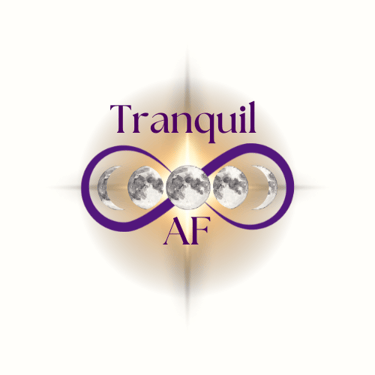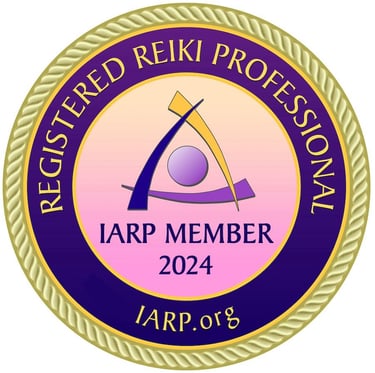Healing Energy: Reiki as a Complementary Approach for Addiction Recovery
In the realm of holistic healing, Reiki stands out as a powerful and gentle practice that has been gaining recognition for its potential in supporting addiction recovery.
REIKI
Crystal
8/8/20233 min read

How Reiki Can Support Recovery from Addiction
Recovery from addiction is a courageous journey of healing, self-discovery, and transformation. While traditional treatments like therapy, counseling, and medical care are essential, complementary practices such as Reiki can play a powerful role in supporting recovery. Reiki, a gentle energy healing modality, promotes balance, relaxation, and emotional healing—key components for overcoming addiction and reclaiming your life.
Understanding Reiki
Reiki is a Japanese healing technique that channels universal life force energy to encourage physical, emotional, and spiritual well-being. Practitioners use light touch or hover their hands above the body to direct this energy, helping to clear blockages, restore balance, and enhance the body’s natural ability to heal.
Addiction and Highly Sensitive People
Many people who struggle with addiction are often highly sensitive individuals or empaths. These individuals have a natural ability to feel the emotions and energy of others deeply, which can be overwhelming without proper boundaries and self-care. Without realizing it, they may turn to substances or behaviors to numb their sensitivity or find relief from emotional discomfort.
What’s often missing is a consistent self-care routine that nurtures their energy and helps them maintain balance. Reiki offers a solution by creating space for grounding, clearing energetic overwhelm, and building inner resilience. When you take care of your energetic and emotional health, you are less likely to reach for outside things to make you feel better because you feel whole and balanced from within.
How Reiki Supports Addiction Recovery
Addiction affects not only the body but also the mind and spirit. Reiki offers a holistic approach to healing by addressing all these layers:
1. Promotes Emotional Healing
Addiction often stems from unresolved emotional pain or trauma. Reiki helps release stored emotions, allowing you to process feelings like guilt, shame, or anger in a safe and nurturing way. This emotional release can provide clarity and a sense of peace, empowering you to move forward in your recovery.
2. Reduces Stress and Anxiety
Recovery can be an emotionally intense process, often accompanied by stress and anxiety. Reiki induces deep relaxation, activating the parasympathetic nervous system, which calms the mind and reduces feelings of overwhelm.
3. Restores Energetic Balance
Addiction can deplete and disrupt the body’s energy centers, or chakras. Reiki helps restore balance to these energy centers, supporting physical, mental, and emotional harmony. For example:
The Root Chakra can be grounded to rebuild stability and security.
The Solar Plexus Chakra can be strengthened to boost confidence and willpower.
The Heart Chakra can be opened to foster self-love and forgiveness.
4. Supports Physical Recovery
Reiki can complement medical treatments by reducing withdrawal symptoms, alleviating physical discomfort, and boosting the immune system. It also enhances sleep quality, which is crucial for the body’s ability to heal.
5. Fosters Spiritual Connection
For many, recovery is a spiritual awakening. Reiki connects you to a higher power, your intuition, or inner guidance, offering a sense of purpose and hope. This spiritual alignment can help you stay grounded and focused on your recovery goals.
How to Incorporate Reiki into Your Recovery
Reiki can be integrated into your recovery journey in various ways:
Private Sessions: Work one-on-one with a Reiki practitioner who can tailor the healing to your needs.
Distance Reiki: Ideal for those who prefer remote healing, allowing you to experience its benefits from the comfort of your home.
Group Healing Circles: Share the energy of a supportive community while receiving Reiki.
Self-Reiki: Learn the practice to empower yourself with daily self-healing.
Real Stories of Healing
Many individuals in recovery have found Reiki to be a valuable complement to traditional treatments. It offers a safe, non-invasive way to address the emotional and energetic roots of addiction while building resilience and fostering a deeper connection to self.
Closing Thoughts
Recovery is a journey, not a destination. It requires courage, commitment, and self-compassion. Reiki can be a gentle yet powerful ally in this process, helping you heal on every level and create a life filled with balance, joy, and purpose.
If you’re curious about how Reiki can support your recovery journey, I’d love to help. Book a session or reach out to learn more!
Remember: You are stronger than your struggles, and healing is always possible.
Let Reiki light the way to your transformation. 🌟


